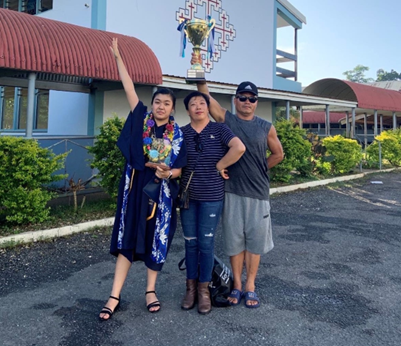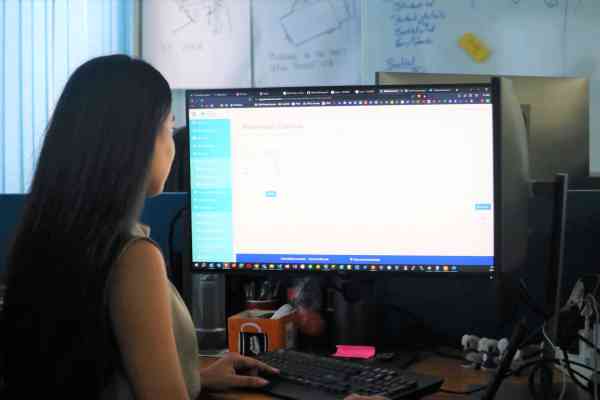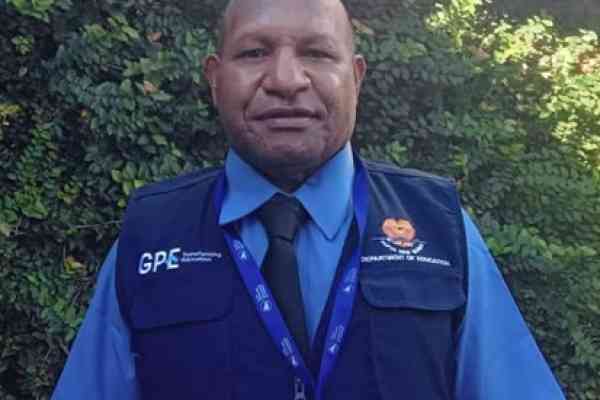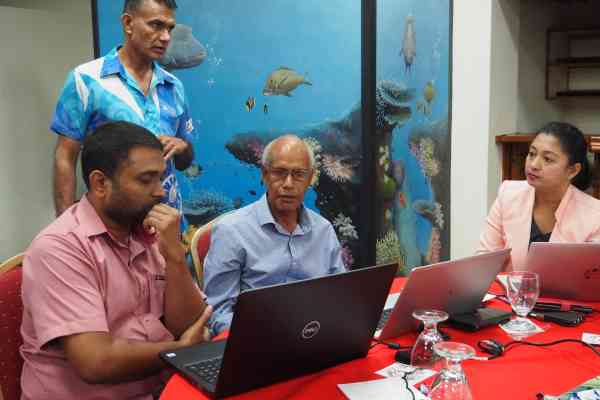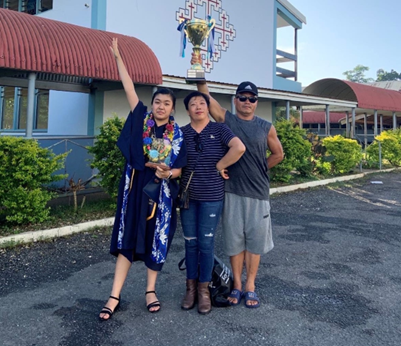 Rosalie’s journey of making her educational dreams come true.
Rosalie’s journey of making her educational dreams come true.
“A journey of a thousand miles begins with a single step.” This common proverb sums up my journey from being a high school student in Vanuatu to receiving a scholarship and enrolling at Monash University based in Australia. The South Pacific Form Seven Certificate (SPFSC) programme became the bridge that helped me reach my academic goals, proving that no matter where we are from, education is a pathway that will help us reach our career goals and guide us to a better future.
My name is Rosalie Wang, and this is my story of making my dreams come true through the SPFSC programme, which is more valuable than pure gold for me.
To understand the depth of this achievement, let's rewind to 2022 when I enrolled on Year 13. At this level, students in Vanuatu go through the regional SPFSC programme, an accredited course offered to Pacific Island nations as a qualification to enter tertiary studies or secure employment. This regional programme is facilitated by the Pacific Community’s (SPC) Educational Quality and Assessment Programme (EQAP).
The syllabus under this programme contains detailed descriptions of the specific learning outcomes, which form the basis of what the student needs to learn and the expected theoretical knowledge for a particular subject. More importantly, the lesson notes on Moodle (an online learning platform) allowed students to exercise their scientific knowledge better and gain a complete understanding towards a specific topic.
From my experience, Moodle platform allows for a more independent learning opportunity, even outside the classroom, which really helped me to increase my learning efficiency and productivity. It is an exceptional quality, inclusive and standardised level of education offered through the SPFSC programme.
Another helpful feature of Moodle is that the lesson notes, activities, practical tasks, and past exam papers are all available in one virtual space, allowing students to measure their potential. For instance, the syllabus contained a very detailed description of the specific learning outcomes that enabled students to provide a deep explanation and make relations between concepts.
The programmes’ research components helped me to demonstrate my capabilities to apply what I learnt in the classroom to the appropriate real-world situations.

For me, our lab reports, presentations and even research projects have assessed beyond paper-based theoretical knowledge. It has helped the students discover more rather than confining themselves to depend only on explanations from the teachers.
I could feel a sense of accomplishment, self-satisfaction, and motivation in my learning as I was driven to move towards my career goal every day. This environment of efficient learning allowed me to reach outstanding scores by capturing all the quality educational resources provided by the SPFSC programme.
The motivation to learn was complemented by the quality of the learning environment that allowed us to study. At Malapoa College, 250 of us were enrolled at the Year 13 level, which created a competitive learning environment for all of us.
Going through mountains and valleys was a valuable learning experience, but I was determined to end my year successfully. After scoring 393 out of 400 in the SPFSC programme, I was awarded the Dux of the Year Excellence in Science and five certificates of achievement.
Ideally, my next step is to become a biomedical scientist as I want to serve my country, especially after realising the importance of medical competence during the COVID-19 pandemic. By becoming a biomedical scientist, I would like to be part of a team that could respond to the challenges of any future pandemic. I am truly honoured and thankful to receive the Australian Department of Foreign Affairs and Trade’s (DFAT) scholarship award to study in my desired field.
After completing the Bachelor of Biomedical Science programme at Monash University, I intend to work as a Biomedical Scientist in the region. After gaining a few years of working experience, I would like to go abroad and pursue a master's degree in health. That would promote my position to become a skilful physician and improve my capacity to give back to society.
My advice for future SPFSC programme students is to seize this golden opportunity to reach their educational goals. I will always remind future students that success is the combined result of many factors, and having an impactful and recognised educational programme, like SPFSC, does not guarantee 100% success. We need to commit ourselves, make the most out of the learning opportunities we receive and eventually enjoy the offered benefits and its fruitful harvest.
When aiming for something. one needs to have the courage, perseverance, determination, dedication, and even a positive outlook in overcoming the challenges you face until those struggles elevate you to the peak of your career.
Background:
SPFSC curriculum is informed by the constructive alignment principle, which inspires an outcomes-based approach or design. SPFSC teachers, school leaders and coordinators are thoroughly informed on the outcomes-based approach which uses the SOLO taxonomy to constructively align its curriculum with its pedagogy and assessments.
A total of 14 subjects (Mathematics with Calculus, Mathematics with Statistics, English, French, Physics, Chemistry, Biology, Accounting, Economics, Geography, History, Information and Communication Technology (ICT), Agriculture, and Tourism and Hospitality) is offered through the SPFSC programme. All subjects have internal assessment components and an external examination.
From 2023, Vanuatu’s Ministry of Education and Training will lead the development and implementation of its national Year 13 qualification, which is very similar to the SPFSC’s curriculum and assessment programme. EQAP will continue supporting this initiative, following Vanuatu’s lead on the critical components of this nationalisation of the Year 13 programme.
